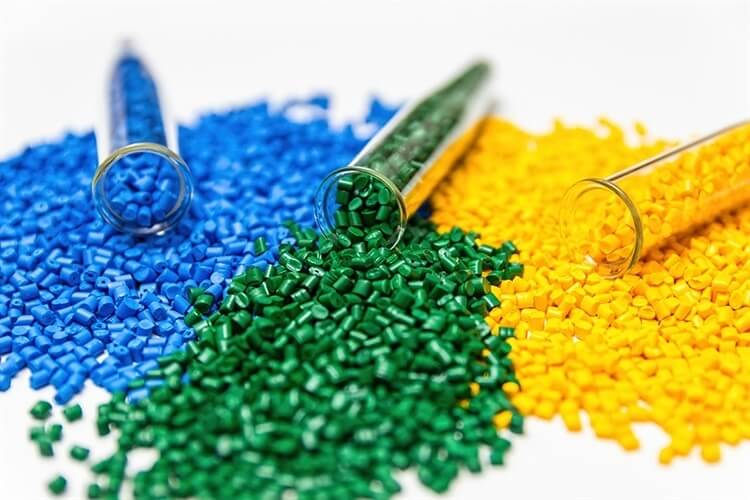Checking Out the Varied Applications and Advantages of Polymers in Different Industries
Polymers, with their diverse range of buildings and performances, have become vital in different industries, each reaping one-of-a-kind advantages from their application. From improving safety and efficiency in the auto sector to reinventing medical devices in the health care sector, polymers play a crucial duty.
Automotive Market Applications
Polymers play a pivotal role in improving the efficiency and durability of various components within the automotive sector. These flexible products are extensively used in the manufacturing of various components, ranging from indoor parts to under-the-hood applications. One prominent usage of polymers in the auto sector remains in the production of light-weight elements. By replacing typical metal get rid of polymer-based choices, automobiles can attain enhanced fuel performance without endangering on stamina or safety.

Health Care Market Advantages
In different healthcare applications, the benefits of making use of polymers are widely recognized for their diverse variety of valuable buildings. Polymers play a crucial role in the medical care industry because of their convenience, biocompatibility, and cost-effectiveness. One of the key advantages of polymers in healthcare is their capacity to be customized to particular needs, such as versatility, resilience, and biodegradability, making them ideal for a wide range of medical applications.
Polymer-based materials are thoroughly used in clinical devices, such as catheters, implants, prosthetics, and medicine distribution systems, because of their biocompatibility and capacity to mimic all-natural tissues. These products can lower the danger of allergic responses or denials, enhancing individual safety and results. Furthermore, polymers are light-weight, making them suitable for wearable medical tools and guaranteeing patient comfort.
Additionally, polymers allow the advancement of innovative therapy methods, such as hydrogels for tissue design and nanocomposites for targeted drug delivery. Their ease of handling and sterilization makes them vital for preserving high criteria of health in healthcare settings. Generally, the varied advantages of polymers add significantly to improvements in medical technology and patient care.
Environmental Advantages of Polymers

In addition, polymers can add to energy savings because of their light-weight nature. In industries such as transportation, light-weight polymer materials can help in reducing fuel usage and greenhouse gas exhausts. In addition, polymers can enable the growth of energy-efficient items such as image source insulation materials that boost power preservation in structures.
In addition, polymers play a crucial duty in minimizing water contamination. The usage of polymer-based filtration systems can properly get rid of toxins and pollutants from wastewater, safeguarding water sources and environments. Generally, the environmental advantages of polymers make them important properties in promoting sustainability and eco-friendly methods across numerous markets.
Polymers in Electronics and Innovation
Thinking about the raising need for cutting-edge and sustainable remedies in contemporary industries, the combination of innovative polymer modern technologies in the realm of electronics and modern technology has actually become an essential technique for driving efficiency and efficiency. Polymers have actually revolutionized the electronic devices sector by enabling the production of lighter, more versatile, and resilient digital tools. From smartphones to clinical devices, polymers play a critical duty in enhancing item design and performance.
One considerable advantage of polymers in electronic devices is their protecting homes, which aid protect fragile electronic elements from environmental factors and electrical disturbance. Furthermore, polymers are crucial in the growth of versatile displays, wearable innovation, and published electronic devices, offering unlimited opportunities for producing clever and interconnected devices.
In addition, using polymers in electronic product packaging has actually resulted in developments in miniaturization and thermal management, boosting the overall efficiency and reliability of electronic systems. As technology remains to develop, the versatility and flexibility of polymers will certainly drive further advancement in the electronics market, shaping the future of innovation.
Function of Polymers in Building And Construction and Infrastructure
The integration of advanced polymer materials in building and construction and facilities projects has revolutionized the explanation way frameworks are developed and developed in modern times. Polymers provide numerous advantages in the building and construction market due to their flexibility, resilience, and cost-effectiveness. One essential duty of polymers in construction is their usage in layers and sealers, giving protection against ecological elements such as moisture, UV radiation, and deterioration. Additionally, polymers are utilized in the production of light-weight and high-strength composite materials, boosting the architectural stability of structures while lowering total weight.
In addition, polymers play a critical role in lasting construction practices by allowing the growth of energy-efficient frameworks. Insulating products made from polymers help control interior temperature levels, decreasing the need for heating and cooling systems and ultimately decreasing energy intake - Polymers.
Conclusion
Finally, polymers play a vital duty in various markets such as automobile, health care, environmental, electronics, and construction. Their functional residential or commercial properties make them useful in producing cutting-edge services and products. From enhancing gas performance in automobiles to enhancing medical devices, polymers supply many advantages. Additionally, their effect on minimizing waste and advertising sustainability highlights their significance in modern-day applications. The prevalent use polymers shows their significant payment to advancing modern technology and boosting high quality of life.